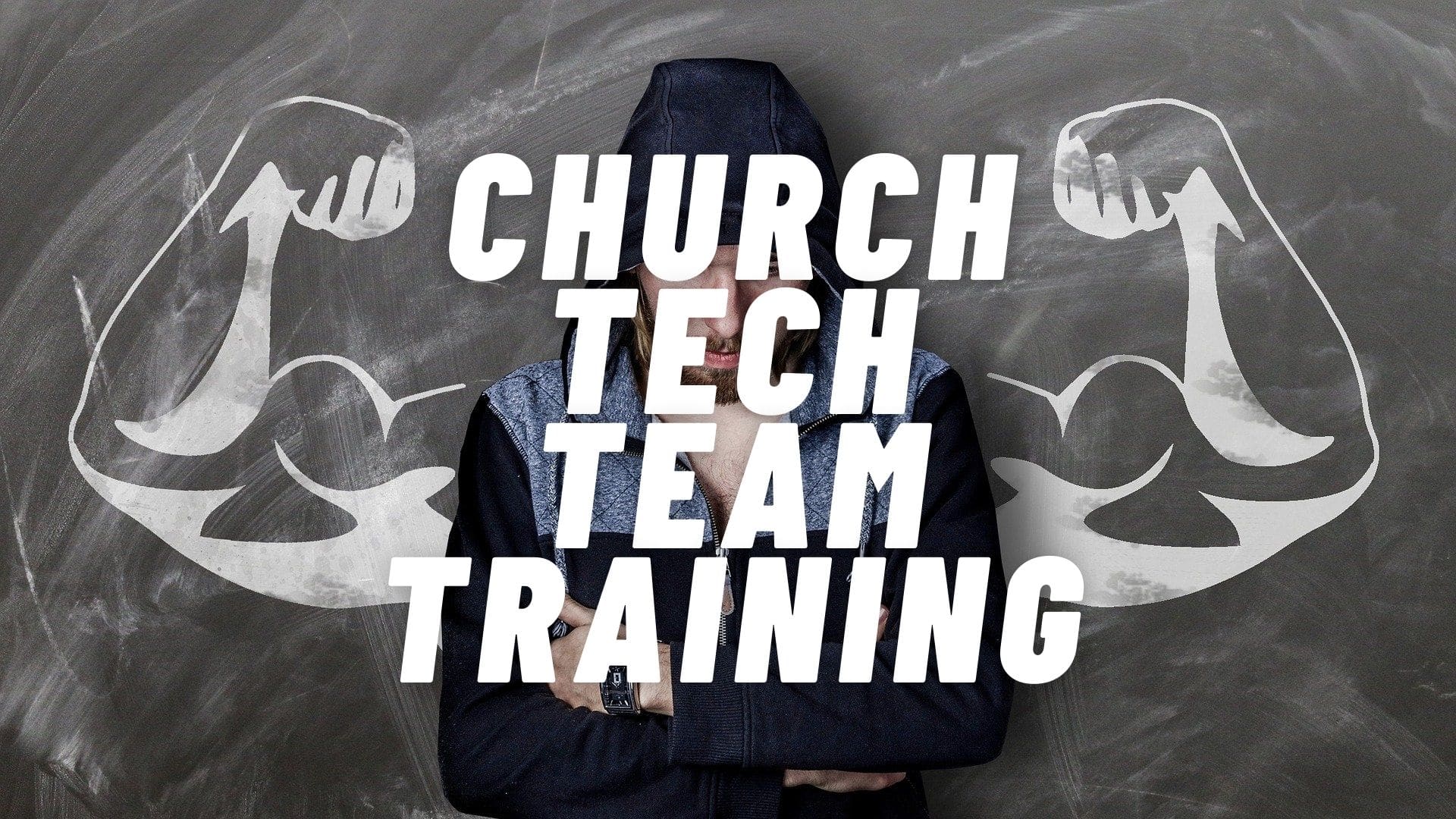Church tech teams are an integral part of church life. They provide the technical knowledge and support that allows everything from video and audio equipment to office computers and even phone systems to work as church members expect.
However, church tech team members don’t always know everything they need to understand to get everything working. This gap in knowledge can lead to frustration when church ministry partners or volunteers try to get too involved in the technical aspects of church services and events and the tech team can’t support them.
The easiest way to relieve this frustration is to ensure that your tech team is fully up to speed – but how can you do that?
The Church Tech Team Master Document
One of the keys to a responsive and knowledgeable tech team is to keep a master document for church tech. This should be easily accessible, preferably stored on cloud storage and offline if possible – even a printed version of the basics can work.
The first problem the church tech team faces is that church members expect them to know everything about everything. In reality, Bob specialises in networking, Tim knows all about phone systems, Alex is a PC whizz, and Steve knows how to fill the gaps in the collective knowledge.
When someone asks Alex about a phone problem, he’ll try to help – but in reality, he should defer to Tim. What Alex can stumble through in an hour, Tim could solve in minutes.
Your master document should contain a list of the tech team members and their areas of expertise. Nothing prevents them from assisting elsewhere, but whenever possible, you need the right person on the job.
Similarly, the document should list where certain resources are kept. Network cables? In the cupboard upstairs. Phone handset? In the locked cabinet in the main office.
Finally, it should also contain any external resources. If you have a printer that is maintained by a third party, contact details should be made available, along with any account number details, etc.
You may also find it useful to maintain a knowledgebase document, including quick fixes for common problems. These may be unique problems for your church, or just issues that took an age to Google the solution to. Keeping this digitally is best as it allows people to search the document – make great use of hashtags and keywords where possible!
In-House Training
In-house church tech training can quickly get new recruits up to speed. Think of it as an induction, and show people how to use the equipment in and around the church.
Training should be simple and easy to follow, ideally with some sort of certification at the end. You can do this by simply having church staff or church volunteers sign off that they have completed the training, rather than just letting them loose on all your church’s equipment without anyone watching!
Knowledge can be shared between team members, and if someone learns a new skill, they can certainly pass it on.
Of course, not everything can be taught in-house, but it certainly provides a great foundation.
Training Courses
Training courses for almost anything and everything can be found online, so if there isn’t a local college running a night class on the particular skill you need, you can start searching!
Coursera (https://www.coursera.org/), Udemy (https://www.udemy.com/), and Khan Academy (https://www.khanacademy.org/) offer many kinds of training courses. Some are free, some are cheap, others are expensive – it often depends on the type of skill you are trying to learn.
Hardware and software suppliers also often offer courses, and YouTube is always a good source of “how to” videos. The important aspect of any training is to take notes and make sure to share the knowledge with others on the tech team – and always use the knowledge you have gained effectively. The church tech team is the backbone of church technology!

